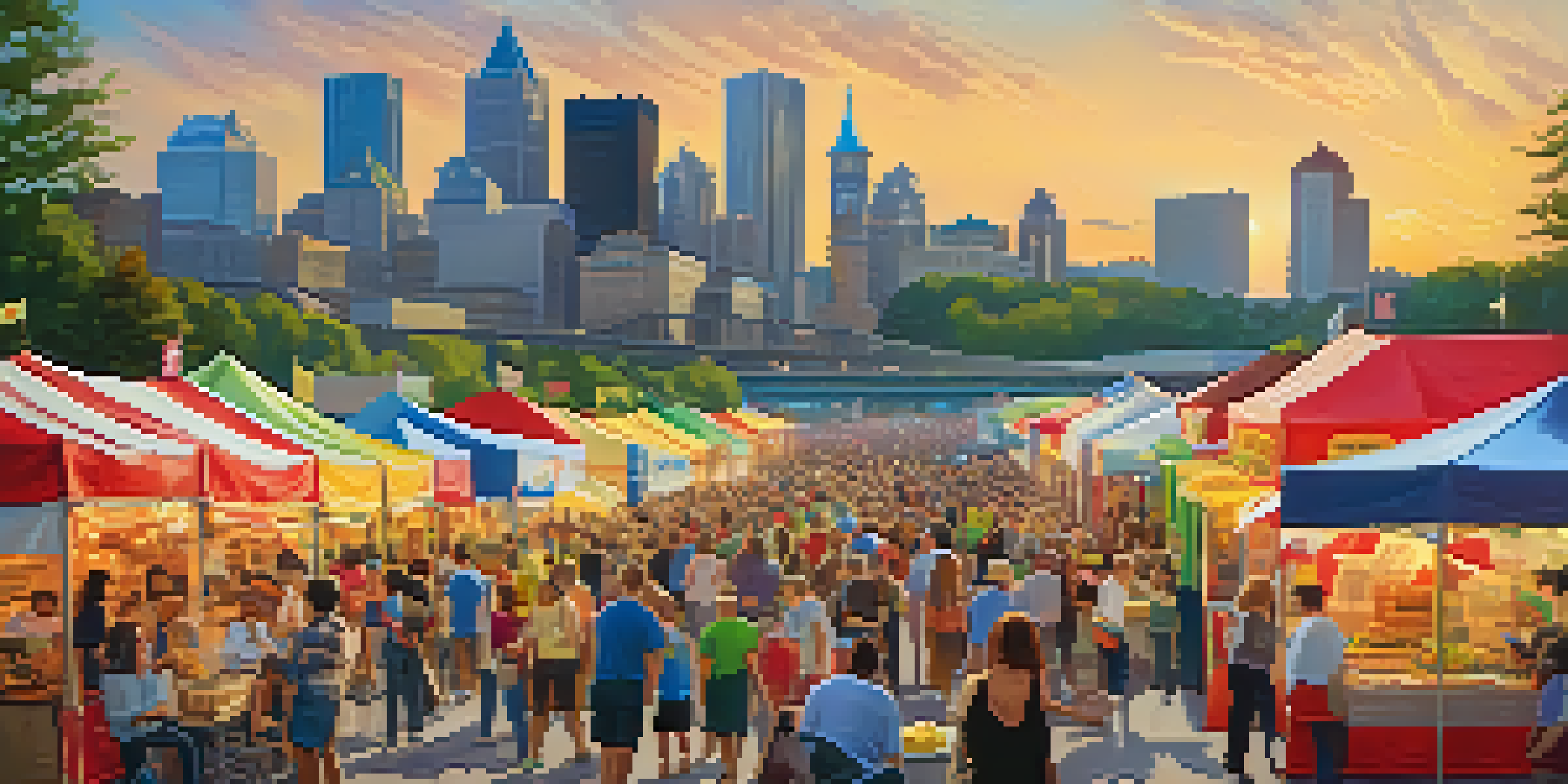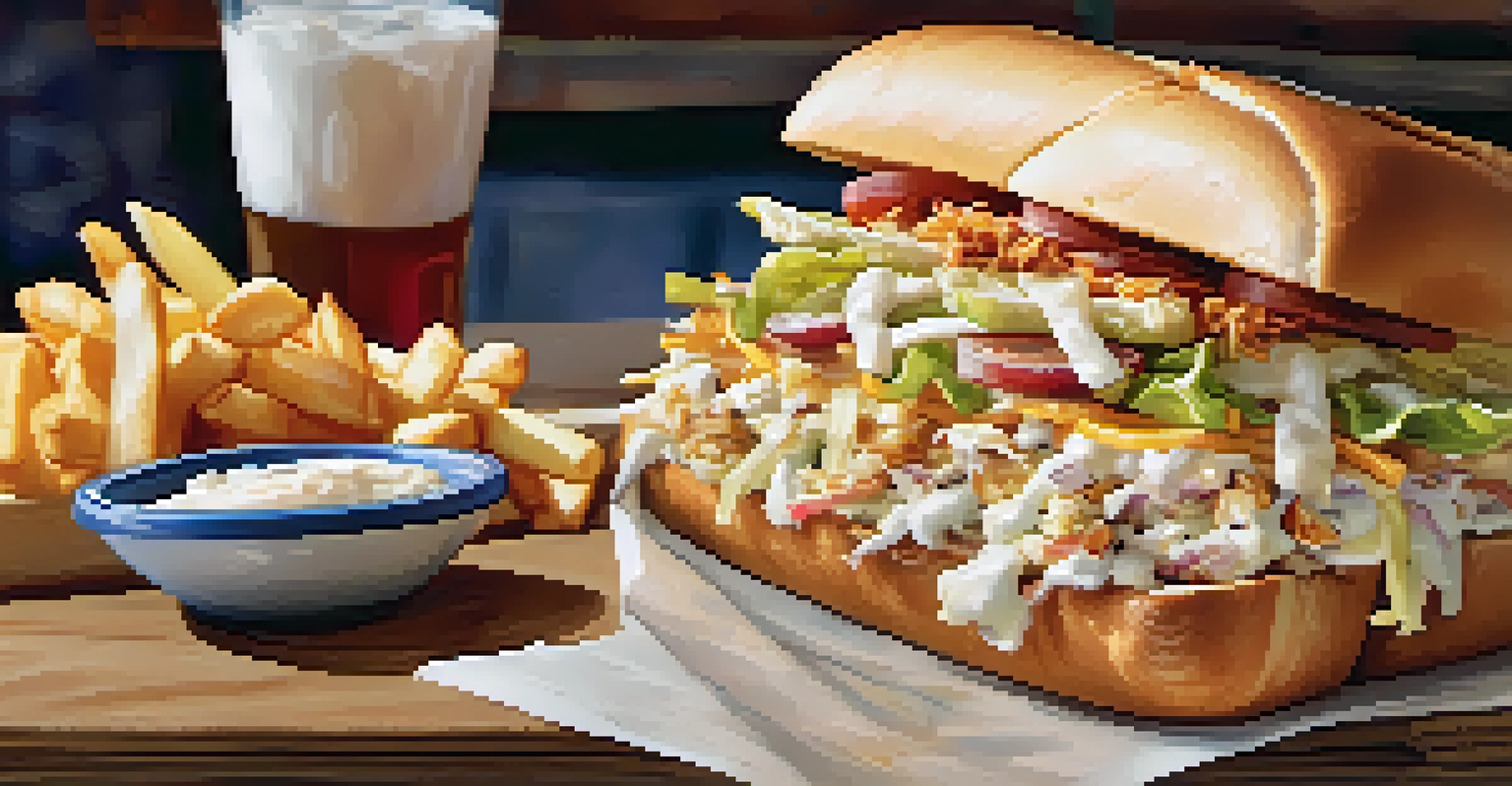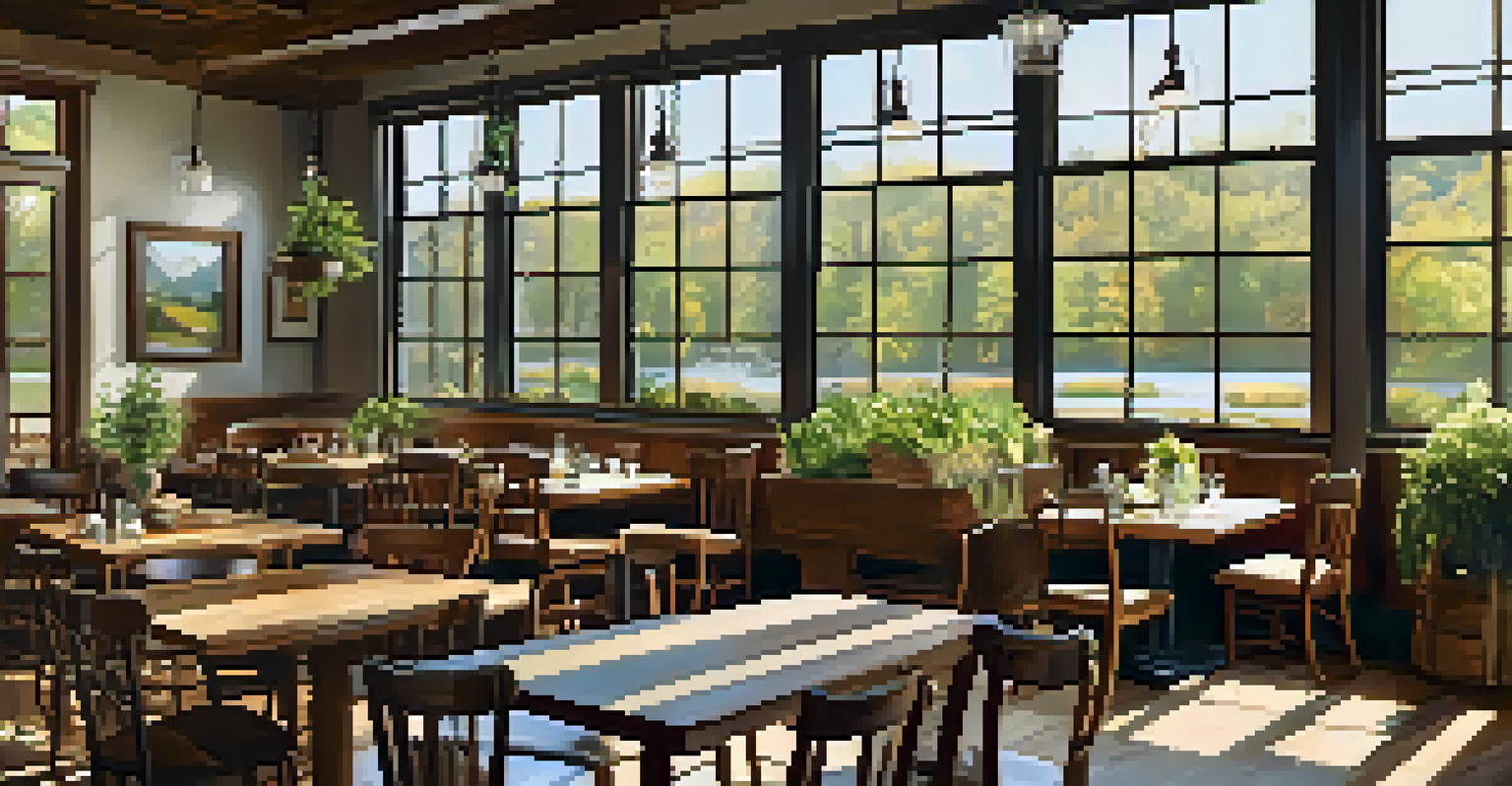Culinary Arts in Pittsburgh: A Taste of Cultural Diversity

The Culinary Landscape of Pittsburgh: A Melting Pot
Pittsburgh’s culinary scene is a vibrant tapestry woven from various cultures. With its historic neighborhoods and modern eateries, the city showcases an array of flavors that reflect its rich immigrant history. Each dish tells a story, making the dining experience not just about food, but about culture and community.
Food is not just what we eat; it’s a reflection of who we are.
From Polish pierogies to Italian pasta, each cuisine has carved out a niche in the city’s food landscape. The influence of diverse cultures is evident in local food festivals, farmers' markets, and family-owned restaurants. This cultural blend creates an inviting atmosphere where locals and visitors alike can explore new tastes.
Moreover, Pittsburgh's culinary diversity encourages collaboration among chefs from different backgrounds. They often come together to create unique fusion dishes, showcasing the best of their respective cultures. This spirit of collaboration not only enriches the food scene but also fosters a sense of unity.
Iconic Dishes: From Primanti Brothers to Gourmet Tacos
When it comes to iconic dishes, Pittsburgh has its stars that are beloved by locals and tourists alike. The Primanti Brothers sandwich, piled high with coleslaw and fries, is a must-try for anyone visiting the Steel City. This sandwich embodies the city's working-class roots and the influence of Italian and Eastern European cuisines.

On the other end of the spectrum, gourmet food trucks have become a staple in Pittsburgh's culinary arts scene. Offering everything from Korean BBQ to vegan tacos, these mobile kitchens reflect the city's evolving palate. They not only provide quick bites but also showcase innovative culinary techniques and global flavors.
Pittsburgh's Culinary Diversity Shines
The city's food scene reflects its rich immigrant history, offering a vibrant mix of flavors and dishes.
The contrast between classic comfort food and modern gourmet interpretations highlights Pittsburgh's culinary evolution. This dynamic food culture invites everyone to experience familiar dishes in new ways, allowing for a delightful culinary adventure.
Culinary Education: Nurturing Future Chefs in Pittsburgh
Pittsburgh is home to several culinary schools that are dedicated to nurturing the next generation of chefs. Institutions like the Pittsburgh Culinary Institute and the Art Institute of Pittsburgh offer comprehensive programs that focus on both traditional techniques and modern culinary innovations. These schools play a crucial role in shaping the local food scene.
Cooking is like love. It should be entered into with abandon or not at all.
Students don't just learn how to cook; they also gain insight into the business side of the culinary arts. Courses often cover everything from food safety to menu design and restaurant management. This well-rounded education prepares them to thrive in a competitive industry.
Moreover, many graduates choose to stay in Pittsburgh, contributing to the city’s culinary diversity. They bring fresh ideas and unique perspectives, further enriching the local dining landscape. This cycle of education and innovation is key to sustaining Pittsburgh's vibrant food culture.
Food Festivals: Celebrating Culinary Diversity
Food festivals in Pittsburgh are a celebration of the city’s rich culinary diversity, drawing food lovers from all over. Events like the Pittsburgh Pierogi Festival and the Three Rivers Arts Festival feature local chefs and restaurants showcasing their specialties. These gatherings not only promote local cuisine but also foster community spirit.
At these festivals, attendees can sample a wide variety of dishes, from traditional favorites to innovative creations. The lively atmosphere, filled with music and art, makes these events a feast for the senses. It's a fantastic opportunity to discover hidden gems and interact with passionate chefs.
Local Ingredients Drive Farm-to-Table
Chefs are increasingly sourcing fresh produce and meats from nearby farms, enhancing flavor and supporting sustainability.
Additionally, food festivals provide a platform for cultural exchange, where different culinary traditions come together. They highlight the importance of food in celebrating heritage, making it a truly enriching experience for everyone involved.
Local Ingredients: Farm-to-Table Movement in Pittsburgh
The farm-to-table movement has gained significant momentum in Pittsburgh, emphasizing the use of local ingredients. Chefs are increasingly sourcing produce, meats, and dairy from nearby farms, ensuring freshness and supporting local agriculture. This not only enhances the flavor of their dishes but also promotes sustainability.
Local farmers' markets are thriving, providing chefs and home cooks alike with access to seasonal produce. These markets foster a connection between consumers and producers, allowing diners to appreciate the origins of their food. It’s a beautiful way to celebrate the bounty of the region.
Moreover, many restaurants in Pittsburgh are committed to transparency about their sourcing practices. By highlighting local farms on their menus, they invite diners to share in the story behind each dish. This connection creates a more meaningful dining experience, promoting a sense of community and support for local businesses.
Culinary Influences: Global Flavors in Pittsburgh
Pittsburgh's culinary arts scene is heavily influenced by global flavors, thanks to its diverse immigrant population. Restaurants offering authentic ethnic cuisines—ranging from Middle Eastern falafel to Asian fusion—are peppered throughout the city. Each establishment brings a piece of their homeland to the Steel City, allowing diners to embark on a global culinary journey.
This diversity is not just limited to restaurants; it extends to grocery stores and markets. Many neighborhoods feature specialty shops that sell ingredients from around the world, making it easier for home cooks to experiment with international recipes. This accessibility encourages a culinary exploration that enriches the local food culture.
Festivals Celebrate Culinary Heritage
Food festivals in Pittsburgh highlight local cuisine and cultural exchange, fostering community spirit and appreciation.
Furthermore, cultural events and cooking classes often highlight these global influences. They provide opportunities for locals to learn about different culinary traditions firsthand, fostering appreciation and understanding. This exchange of culinary knowledge strengthens the community bonds and celebrates Pittsburgh's rich cultural landscape.
The Future of Culinary Arts in Pittsburgh
The future of culinary arts in Pittsburgh looks promising, as the city continues to embrace innovation and diversity in its food scene. New restaurants and food concepts are emerging, eager to explore unique flavor combinations and modern dining experiences. This forward-thinking approach keeps the culinary landscape fresh and exciting.
Moreover, as the city invests in its culinary education programs, we can expect an influx of talented chefs ready to make their mark. These new culinary leaders will likely draw inspiration from Pittsburgh’s rich history while also pushing the boundaries of traditional cuisine. The result will be an even more dynamic food culture.

As Pittsburgh grows and evolves, it remains committed to celebrating its culinary heritage. The fusion of old and new, local and global, will continue to define the city's culinary identity. This blend ensures that Pittsburgh remains a vibrant destination for food enthusiasts for years to come.